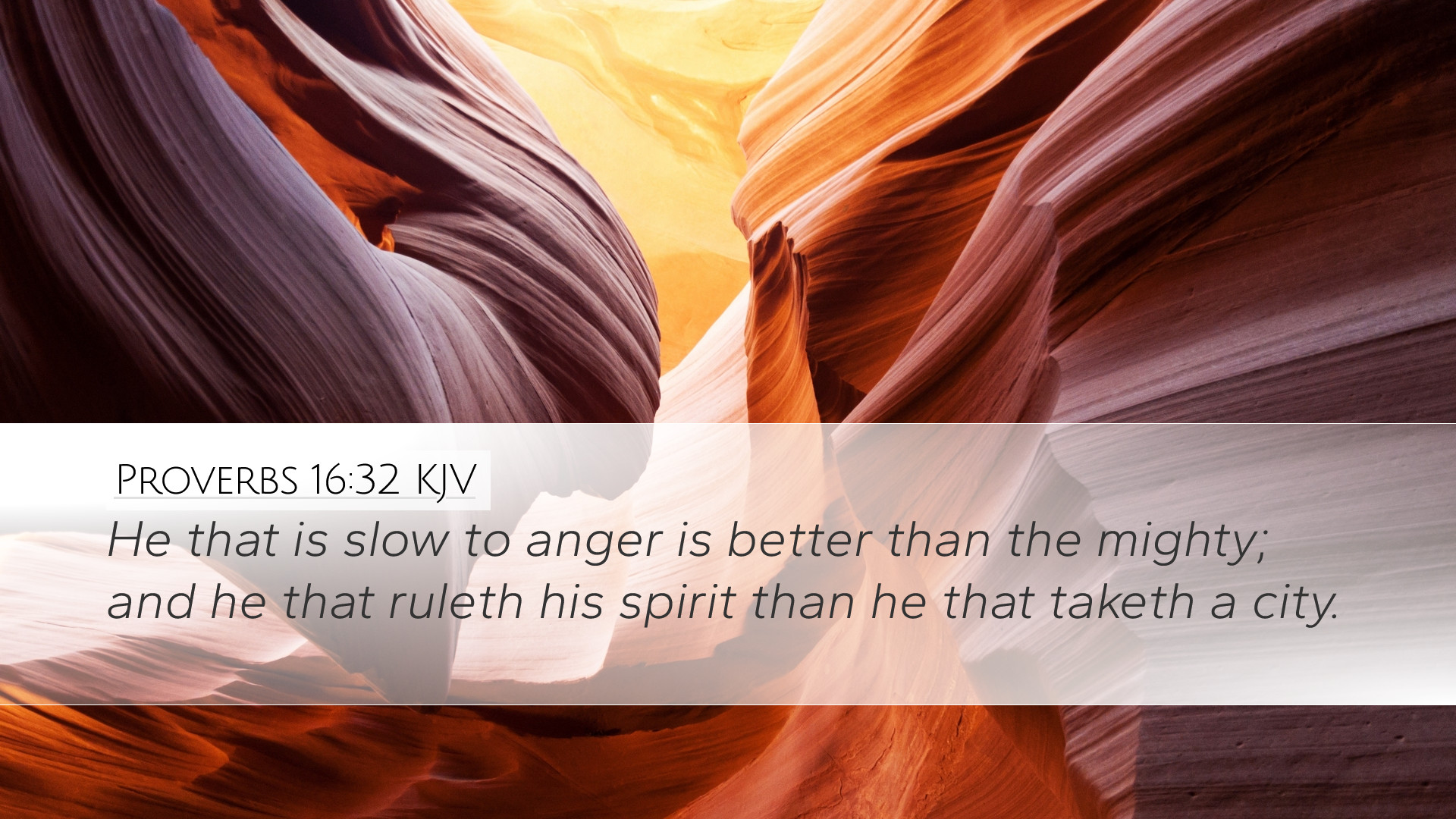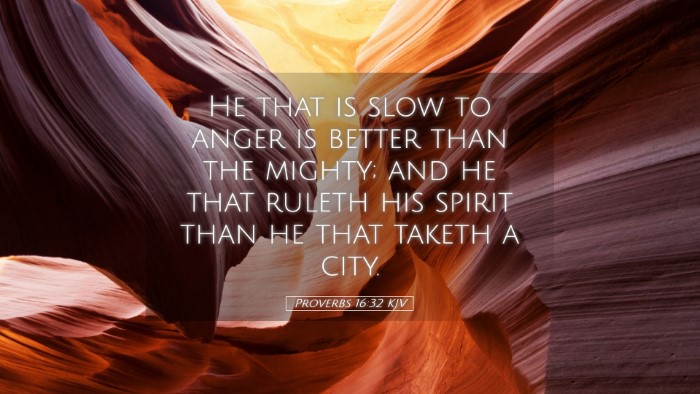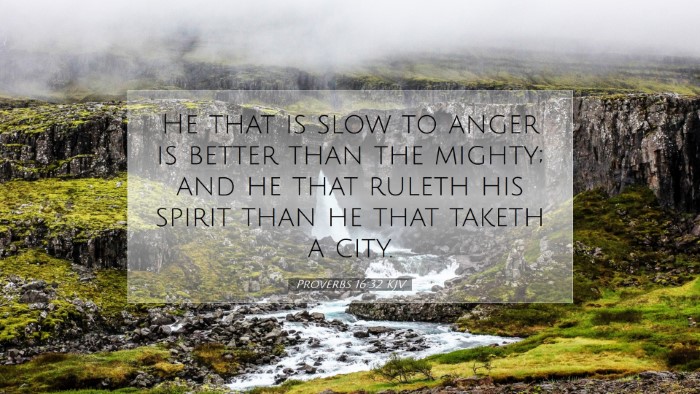Commentary on Proverbs 16:32
Proverbs 16:32 (ESV): "Whoever is slow to anger is better than the mighty, and he who rules his spirit than he who takes a city."
Introduction
This verse encapsulates a profound biblical principle regarding self-control and the value of a composed spirit over sheer strength and conquest. The wisdom in Proverbs often contrasts external achievements with internal virtues, revealing a deeper ethic conducive to community and personal spiritual growth.
Matthew Henry's Commentary
According to Matthew Henry, a key theme in this passage is the superiority of self-control over physical might. He argues that while the mighty man may conquer lands and nations, true strength lies in the mastery of one's emotions, particularly anger. Henry emphasizes that being slow to anger reflects a disciplined spirit that aligns with divine wisdom. He writes:
"It is better to be patient and restrain oneself than to act with aggressive strength. The one who controls his temper exhibits a noble character that surpasses military successes."
Henry further illustrates that rulers and kings may hold great power, but the ability to govern one's heart and emotions is the greatest achievement of all. This capacity promotes peace and constructive relationships, vital for communal harmony.
Albert Barnes' Commentary
Albert Barnes emphasizes the practical wisdom embedded in this proverb. He notes that the "mighty" often refers to those who wield external power, such as warriors or rulers. However, Barnes points out that:
"The actual ruler is not one who conquers armies, but one who governs his own heart and spirit."
He contends that the victory over oneself is much more commendable and enduring than the success achieved through physical domination. Barnes encourages readers to seek the spiritual strength necessary to manage tangled emotions, aligning one’s behavior with godly principles. He observes that this inner strength leads to a life filled with peace rather than conflict.
Adam Clarke's Commentary
Adam Clarke presents an insightful interpretation that connects this proverb to broader ethical teachings within the Scripture. He indicates that being "slow to anger" is a divine characteristic:
"God Himself is slow to anger, and to imitate Him is to fulfill the highest form of righteousness."
Clarke expands on the idea that those who practice patience and self-control inspire others and contribute to societal strength. He highlights that the absence of anger leads to wisdom, stating that:
"He that is master of his own temper is truly a wise man, while he who does not possess such mastery walks the path of folly."
This further emphasizes that self-mastery is not merely beneficial for personal welfare but also serves society, as it fosters an environment where constructive discourse and peaceful resolutions flourish.
Theological Reflections
The overarching theme of Proverbs 16:32 speaks significantly to the character of God and the expected behavior of his followers. Both Old and New Testament teachings support the view that internal virtues should always supersede external achievements. This opens deep theological reflections, particularly regarding:
- The Nature of God: God’s own patience and grace exemplify the ultimate form of self-control.
- Human Relationships: The connection between anger management and relational health is evident; communities thrive on individuals who choose peace over strife.
- Leadership Qualities: Leaders are often revered for their strategic insights, yet their ability to stay composed in challenging situations speaks volumes about their true capability.
Practical Applications
This verse challenges pastors, theologians, and laypeople alike to reflect on the nature of their own tempers. The following applications can be drawn:
- Personal Reflection: Regular practice of self-examination about how we handle anger in various aspects of life.
- Conflict Resolution: Embracing calmness as a tool for negotiating peace in personal and communal disputes.
- Teaching Righteous Anger: Educators should emphasize the importance of righteous anger (which can lead to constructive change) as opposed to destructive anger.
- Building Community: Encourage a community ethos where patience and spirit control is celebrated and recognized.
Conclusion
Proverbs 16:32 wisely reminds us that true strength is often measured not by our ability to conquer others but by our ability to rule ourselves. This internal triumph over anger and turmoil heralds a blessed life, one that resonates with God’s purposes. The insights from commentators such as Matthew Henry, Albert Barnes, and Adam Clarke serve to enrich our understanding, prompting us to cultivate a spirit of patience and self-control as followers of Christ, who modeled these virtues flawlessly.


